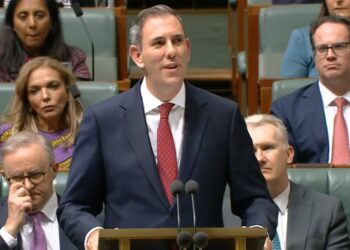According to Association of Independently Owned Financial Professionals (AIOFP) executive director Peter Johnston, there is a clear lack of ability among the political class and the poor drafting and eventual legislation relating to changes in section 99FA of the SIS Act is proof.
In August, Bernard Quinn KC provided an expert legal opinion on s99FA that Johnston called “arguably the best investment the AIOFP has made on behalf of its members and the wider advice community”.
According to Quinn, the new s99FA has not fixed the issues that Quality of Advice Review (QAR) lead Michelle Levy identified.
“In my opinion, the new section 99FA remains problematic from a regulatory and compliance perspective,” Quinn wrote in the opinion.
“This is essentially because it fails to faithfully and clearly implement the relevant recommendation of the Quality of Advice Report, namely Recommendation 7, and will accordingly not achieve the central objective of that recommendation.”
In a note this week, Johnston said Quinn’s opinion paper is the “latest evidence” that there has been a lowering of intellectual and ethical standards in Canberra over the past 20 years.
“This legislation is clearly flawed but the minister and Treasury bureaucrat advisers either do not understand or do not care about the integrity of the issue and its market ramifications going forward. Unfortunately for our industry and consumers, they have simply ignored it,” he said.
“The time has now come for minimum educational and ethical standards to be imposed on all politicians entering all levels of government.”
A key factor in this, according to Johnston, is the removal of the “overly generous superannuation pension scheme for politicians” in 2004, which he called a “dark day for Australia’s democratic health and culture”.
“This action was, of course, grandfathered for existing politicians, a classic display of self-interest and a great victory for taxpayers but it can be argued a poor outcome over the long term for consumers and the nation,” he said.
“This cancellation means all politicians entering Parliament post the 2004 election are excluded from the pension scheme and subject to conditions closer to current taxpayer superannuation arrangements.
“What this has done is remove the incentive for the best potential candidates to enter Canberra, making it very difficult for all sides of politics to recruit the best brains (and ethics) into the political fray. This degradation of quality over the past 20 years is quite evident with the poor behaviour, ethics and intellect on display by some politicians for all to see.”
In order to turn things around, Johnston argued there should be greater monetary incentives for politicians, balanced with some baseline requirements in the form of educational and ethical standards.
“A political degree or similar and passing an ethics exam should be a minimum criterion. Without appropriate standards, it has become quite apparent over the past 20 years that some politicians are just not across their portfolios or do not generally understand basic issues,” he said.
Johnston added: “The other conundrum challenging Canberra and the nation is the best legal and commercial talent do not normally strive to work for the Commonwealth public service. This cohort are seeking higher levels in the corporate or international sectors leaving the second-tier talent going into the public service.
“This has created a less-than-ideal mediocratic environment where the best brains are not navigating the country’s future, Mr Quinn KC has clearly and comprehensively illustrated this point.”




Funny how they all went quiet.
These ‘politicians’ we’re talking about are the sad creatures who award themselves hefty pay rises in midnight sessions of parliament. Although I applaud Peter for commissioning this leagal expert report and all he has said in the report, I hold little hope these politician swamp beings will legislate to force education upon themselves. It would take more than an act of parliament, it would take an act of God. Remember, these are the creatures making the rules and even if is tabled they have a million ways to Sunday to see it never sees the light of day.
What a crock of ….. – there are a heap of things politicians need more than anything eg empathy. Does Peter Johnston think beyond himself
It would make sense for elected Politicians to complete a Bachelor of Political science. Applying the same logic applied via FASEA and Advisers of course. I’m sure I would not get any arguments from financially broke Universities.
Cue the pollie course providers…!
There should be a compulsory FASEA exam for politicians.
At LEAST! – at the VERY least. They do purport to be running the country, after all. But given they’re running it *into the ground*, well, I suppose they don’t need any qualifications for THAT . . .
Add 40hrs CPD pa for Pollies & Bureaucrats.
These Pollies and Bureaucrats impose significant CPD on others but not themselves.
Lists of Pollies & Bureaucrats are lawyers, that only have 10hrs CPD pa and of that only 1 hr compulsory Ethics.
V’s imposed on Advisers is 40hrs pa CPD and compulsory 9hrs Ethics.
HOW CAN POLLIES AND BUREAUCRATS NOT BE HELD TO THE SAME STANDARDS THEY IMPOSE ???
I have seen multiple comments on these forums, that you can all rest easy because S99FAhas been “all fixed up”.
I can tell you from lived experience that this is NOT the case.
Wait until you receive your “please explain” email from this or that platform about your fees.
Yep, the only profession and/or trade in Australia that does not require minimum education standards, experience requirements, continuing professional development or ethics education. The swamp is full of dross and we are paying for it.